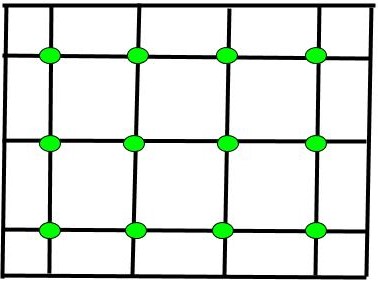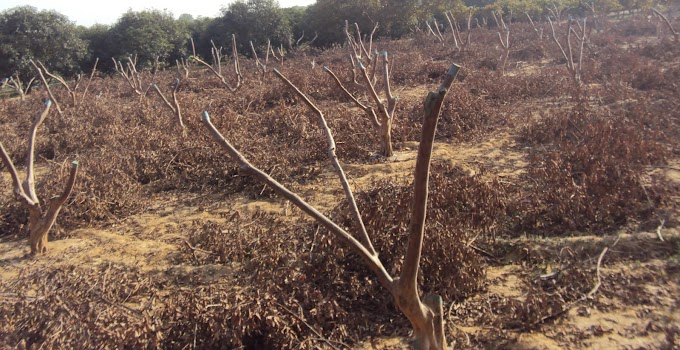Abscisic acid is a terpenoid and close to carotenoids.
It is interesting to know that ABA consists 5 carbon isoprene units,
gibberellins 4 isoprene units (diterpene) and carotenoids are built up of
several isoprene units (polyterpenes). This hormone was isolated from birch (Betula
pubescens) leaves and named ‘dormin’; from cotton fruits and termed ‘abscision
II’ as well as from maple or sycamore (Acer pseudoplantanus) and called ABA.
These substances were recognized as growth retarding hormones and later on
collectively named as abscisic acid due to similarity among the substances. The
abscisic acid is found in angiosperms (higher plants bearing seeds within fruit),
gymnosperms (higher plants bearing naked seeds), pteridophytes (bearing neither
flower nor seeds and reproducing by spores) and mosses but thallophytes (thallus
body and no distinction among root, stem and leaves) deprive to ABA. The
abscisic acid is present in two forms: cis-an active form and trans-an inactive
form. The trans-form converts into cis-form under UV-light. The natural ABA
always exists in cis-form and remains biologically active. The cycloheximide is
a synthetic ABA.
Biosynthesis
The abscisic acid synthesizes in leaves, stem,
fruits, and seeds but its content was found highest in fruits and seeds. There
are two pathways of ABA synthesis: 1- Carotenoid pathway in which carotenoids
are oxidized and yields abscisic acid and 2- Isoprenoid pathway where ABA is
synthesized from mevalonic acid (MVA). MVA converts into farnesylpyrophosphate
(FPP) and ABA synthesizes from FPP. The gibberellins are also synthesized from
MVA.
Antagonists of abscisic acid
The paclobutrazol and decyclimidazole inhibit the biosynthesis of ABA at a step after FPP formation. ABA synthesis increases when plants exposed to the abiotic stresses because of this reason higher concentration of ABA is recorded in wilting leaves than normal one. The movement of the ABA is multidirectional in the plants.
The paclobutrazol and decyclimidazole inhibit the biosynthesis of ABA at a step after FPP formation. ABA synthesis increases when plants exposed to the abiotic stresses because of this reason higher concentration of ABA is recorded in wilting leaves than normal one. The movement of the ABA is multidirectional in the plants.
Related Topics: Ethylene , Cytokinins
Role of abscisic acid
Closure of stomata
The abscisic acid is used as anti-transpirant because it closes the stomata and thereby checks the loss of water through transpiration. ABA synthesis increases in the leaves under water stress condition resulting stomata closing.
The abscisic acid is used as anti-transpirant because it closes the stomata and thereby checks the loss of water through transpiration. ABA synthesis increases in the leaves under water stress condition resulting stomata closing.
Dormancy
Abscisic acid induces the dormancy of seeds and buds. The dormancy is controlled by endogenous level of abscisic acid.
Abscisic acid induces the dormancy of seeds and buds. The dormancy is controlled by endogenous level of abscisic acid.
Senescence and abscission
It promotes senescence and abscission of leaves, flowers and fruits.
It promotes senescence and abscission of leaves, flowers and fruits.
Flower initiation
The ABA induces flowering in short day plants whereas it inhibits flowering in long day plants.
The ABA induces flowering in short day plants whereas it inhibits flowering in long day plants.
Uses in Horticulture
- It is used to inhibit potato sprouting during storage. The sprouting makes potato sweet due to conversion of the starch into sugar. The sweet potato is not considered to be of good quality.
- The ABA is used as anti-transpirant.







